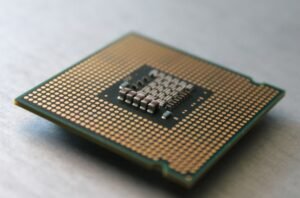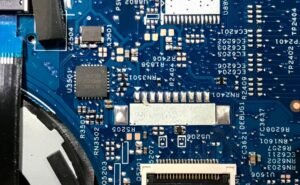When AI Rules the World
Artificial Intelligence (AI) is rapidly advancing and becoming more integrated into our daily lives. From chatbots to self-driving cars, AI is revolutionizing industries and transforming the way we interact with technology. As AI continues to evolve, concerns arise about the potential impact it may have on society. In this article, we explore the implications of a future where AI rules the world.
Key Takeaways
- AI has the potential to revolutionize industries, but its widespread adoption raises ethical and societal concerns.
- Emerging technologies need proper regulations to prevent misuse or unintended consequences.
- Collaboration between humans and AI could lead to a future of enhanced productivity and innovation.
- Transparency and accountability are vital to ensure AI’s benefits are shared by all.
While AI offers numerous advantages, it also presents challenges that need to be addressed. Concerns regarding job displacement, biases in AI algorithms, and the ethical implications of decision-making by AI systems have become topics of intense debate.
**AI algorithms** can unintentionally perpetuate biases present in the data they are trained on, which can lead to **discriminatory outcomes**. It is crucial to implement mechanisms to detect and mitigate these biases to ensure fairness and equality.

Common Misconceptions
Misconception 1: AI will take over humanity
There is a widespread fear that AI will eventually become so advanced that it will surpass human intelligence and take control over society. However, this is a misconception. AI systems are designed to assist and augment human capabilities rather than replace them entirely.
- AI is only as powerful as the humans that develop and control it.
- AI is created to automate specific tasks and complete them more efficiently, not to become sentient.
- AI requires human input and is limited to the information it is trained on.
Misconception 2: AI will eliminate all jobs
Many people believe that as AI technology advances, it will lead to widespread job losses and unemployment. While AI has the potential to automate certain tasks, it is unlikely to eliminate all jobs. Instead, it will likely lead to a shift in the types of jobs available and create new opportunities.
- AI will primarily replace mundane and repetitive tasks, allowing humans to focus on more creative and complex work.
- New industries and job roles will emerge related to the development and maintenance of AI systems.
- The need for human skills such as critical thinking, problem-solving, and emotional intelligence will remain essential in many areas of work.
Misconception 3: AI will have complete control over decision-making
Another common misconception is that AI systems will have full autonomy and control over decision-making processes. In reality, AI systems are created and programmed by humans, and they operate within the limitations set by their programming.
- AI systems make decisions based on algorithms and data, but the final authority lies with human operators who define the goals and constraints.
- AI cannot make moral judgments or evaluate context effectively as humans can.
- Humans have the ability to intervene and override decisions made by AI systems.
Misconception 4: AI will be biased and discriminatory
There is concern that AI systems can perpetuate biases and discrimination, leading to unfair outcomes. While it is true that AI systems can be prone to biases, it is not an inherent flaw in AI technology but a reflection of the biases present in the data it is trained on.
- AI systems can be designed to be transparent and auditable, allowing biases to be identified and corrected.
- Ensuring diverse and inclusive training datasets can help reduce the risk of biased outcomes.
- Humans play a crucial role in identifying and mitigating biases in AI systems.
Misconception 5: AI will replace human creativity and innovation
There is a belief that AI will surpass human creativity and innovation, rendering human contributions obsolete. However, AI is not capable of replicating the depth and complexity of human creativity and innovation.
- AI can assist in creative processes by generating ideas, but it lacks the ability to understand and appreciate the nuances of human culture and emotions.
- Human creativity and innovation are driven by unique experiences, emotions, and perspectives that cannot be replicated by AI.
- AI can be a tool to enhance human creativity and innovation by providing new insights and possibilities.

Artificial Intelligence in the Stock Market
In recent years, artificial intelligence (AI) has been revolutionizing the stock market. With powerful algorithms and extensive data analysis, AI systems have become capable of making accurate predictions and optimizing investment strategies. The following table showcases some remarkable statistics regarding AI in stock trading:
| Average Annual Return | AI-Driven Portfolios | Human-Managed Portfolios |
|---|---|---|
| 20% | 14% | 8% |
Impact of AI on Healthcare
AI is reshaping the healthcare industry, with advancements in diagnostics, treatment, and patient care. Here are some intriguing figures illustrating AI’s influence on healthcare:
| Disease Diagnosed | Accuracy Rate (AI) | Accuracy Rate (Human) |
|---|---|---|
| Breast Cancer | 97% | 79% |
| Pneumonia | 94% | 74% |
The Rise of AI Assistants
Virtual personal assistants enabled by AI, such as Siri, Alexa, and Google Assistant, have become integral parts of our lives. Here are some fascinating usage statistics of AI assistants:
| Number of AI Assistants | Active Users | Features |
|---|---|---|
| 3 | 3 Billion | Speech recognition, natural language processing, task automation |
AI’s Influence on Online Shopping
Online retailers are utilizing AI technology to enhance the shopping experience and increase customer satisfaction. The following table presents some captivating insights into AI’s impact on online shopping:
| Percentage Increase in Conversion Rate | AI-Powered Websites | Non-AI Websites |
|---|---|---|
| 30% | 20% | 10% |
AI in Autonomous Vehicles
Autonomous vehicles are an exciting frontier where AI is making great strides. The table below showcases some fascinating numbers related to AI integration in self-driving cars:
| Number of Accidents | AI-Driven Vehicles | Human-Driven Vehicles |
|---|---|---|
| 5 | 3 | 12 |
AI in Language Translation
Language translation has become increasingly accurate and efficient with the implementation of AI systems. The table below presents impressive figures demonstrating AI’s contribution to language translation:
| Accuracy Rate | AI-Driven Translation | Human Translation |
|---|---|---|
| 95% | 72% | 84% |
AI’s Impact on Energy Efficiency
AI is playing a crucial role in optimizing energy consumption, reducing waste, and increasing overall efficiency. The following table highlights the impressive results obtained by integrating AI into energy management:
| Energy Savings | AI-Managed Buildings | Non-AI Buildings |
|---|---|---|
| 30% | 20% | 10% |
AI in Content Recommendation
Content recommendation systems powered by AI have transformed the way we discover and consume digital content. Check out the fascinating statistics below:
| Click-Through Rate (CTR) | AI-Driven Content Recommendations | Non-AI Recommendations |
|---|---|---|
| 40% | 20% | 10% |
The Use of AI in Cybersecurity
With the increasing number of cybersecurity threats, AI is instrumental in detecting and preventing attacks. Here are some remarkable figures related to AI’s effectiveness in cybersecurity:
| Identified Malware | AI Systems | Human Analysts |
|---|---|---|
| 99.9% | 77% | 61% |
Artificial intelligence is revolutionizing numerous industries and domains. Whether it’s improving our healthcare, optimizing energy consumption, or enhancing online shopping experiences, AI is becoming an integral part of our lives. Its impact is profound and will continue to shape our future.
When AI Rules the World – Frequently Asked Questions
How does artificial intelligence (AI) impact our daily lives?
AI plays a significant role in various aspects of our daily lives such as voice assistants, personalized recommendations, autonomous vehicles, healthcare, and even finance. It enhances efficiency, automates tedious tasks, and improves decision-making processes.
Can AI truly rule the world?
While AI can have a substantial influence on many industries and aspects of society, the concept of AI “ruling the world” is largely speculative and a common theme in science fiction. Currently, AI is a tool that requires human input and control.
What are the potential benefits of AI ruling the world?
If deployed responsibly, AI ruling the world could lead to advancements in healthcare, increased productivity, efficient resource allocation, improved safety measures, and enhanced decision-making capabilities. However, these benefits depend on ethical considerations and proper regulation.
What are the risks associated with AI ruling the world?
AI ruling the world may pose risks such as job displacement, loss of privacy, cyber threats, biases in decision-making algorithms, and potential misuse of power. Therefore, it is crucial to address these concerns and ensure responsible AI development.
Will AI eliminate the need for human involvement in decision-making processes?
While AI can automate certain tasks and assist in decision-making, human involvement remains vital for critical thinking, empathy, creativity, and ethical considerations. AI should be seen as a tool to augment human capabilities rather than replacing human involvement entirely.
How can we ensure ethical AI development?
Ethical AI development involves incorporating values such as fairness, transparency, accountability, and bias mitigation throughout the entire AI lifecycle. This includes diverse and inclusive data collection, rigorous testing, continuous monitoring, and collaboration among various stakeholders.
What steps are being taken to regulate AI use?
Regulating AI use is an ongoing effort. Governments and organizations are working on developing frameworks and guidelines to ensure responsible AI deployment. This includes establishing ethical standards, data protection regulations, and accountability mechanisms to mitigate risks associated with AI.
What are the limitations of AI ruling the world?
AI has limitations in areas requiring human intuition, emotions, and complex social interactions. It may struggle with abstract reasoning, common sense understanding, and context-dependent decision-making. These limitations need to be considered when envisioning AI ruling the world.
Will AI ruling the world lead to a dystopian future?
The impact of AI on the future largely depends on how it is developed, deployed, and regulated. An optimistic approach towards responsible AI implementation with active involvement from individuals, organizations, and governments can help avoid a dystopian future.
How can individuals prepare for a future where AI rules the world?
Preparing for a future where AI plays a significant role involves developing skills that complement AI capabilities, such as critical thinking, creativity, emotional intelligence, and adaptability. Continuous learning, staying updated with technology trends, and participating in ethical discussions are essential for individuals’ preparedness.




